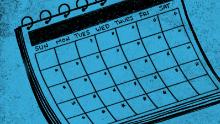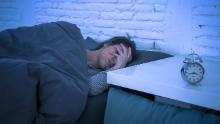But health experts strongly recommend you do your best to prevent excess weight gain during this historic and scary time.
Dr. David Buchin, director of bariatric surgery at Huntington Hospital, is seeing that a large percentage of the patients battling Covid-19 in the medical center’s intensive care unit are obese. Patients who are obese are especially challenging to care for, he said, as treatment involves rolling them from their back to their front regularly to optimize lung function. In addition, a recent study found that in patients under the age of 60, obesity doubled the risk of Covid-19 hospitalization.
I’m not suggesting starting a strict diet or intense exercise program while sheltering in place, but there are some simple things you can do to prevent weight gain and protect yourself not only from Covid-19-related complications, but also from diseases such as diabetes and heart disease that will remain two of the top causes of death after we get through this pandemic.
Shop smart
When it comes to quarantine shopping, it’s important to be organized, especially when it comes to eating enough fruits and vegetables (aim for five servings per day if you can). Buy a combination of fresh, frozen and canned to last you at least a week or more.
Consume fresh products first and then move on to frozen and canned. Rinse canned vegetables to reduce sodium, and be sure to consume fresh or frozen fruit daily as the vitamin C content of canned fruits and vegetables, which is important for immunity health, is lower than fresh or frozen.
Chef Devin Alexander, who has maintained a 70-pound weight loss for decades, has some terrific tips for shopping on a budget and managing quarantine cravings. When buying produce, for example, unlike most other items, she suggested looking for the items on sale.
Watermelon and berries go on sale in the summer because they’re in season and thus very plentiful. That’s also when they taste the best, so you can make amazing desserts without the need for a ton of added sugar.
Alexander also recommended having coleslaw on hand for when the salty cravings hit. Her recipe for Orange Cilantro Cole Slaw, available on her website, satisfies that salty, crunchy hankering in a way that’s actually good for you. It helps get in a serving or two of vegetables, and just might keep you from “needing” to eat a bag of chips. In addition, cabbage and carrots are budget-friendly, last for weeks and are loaded with immune-supporting nutrients.
When you come home from the store, make sure to put the healthier foods in more easily seen locations in your kitchen. Food cravings and hunger can be triggered by just seeing food, so keep more indulgent foods out of sight — and hopefully out of mind — on upper shelves in your cupboard, in the back of the fridge or the bottom of the freezer.
Manage stress
During this global crisis it’s even more important than ever to find ways to conquer stress and manage anxiety.
I know, it isn’t easy. Balancing homeschooling, financial challenges, cabin fever, social isolation and illness is stressful, but stress can contribute to poor eating choices and increase fat deep in your belly (underneath the muscle) that can contribute to heart disease and diabetes even more than the pinchable fat that lies directly underneath your skin.
Practice mindfulness, meaning doing your best trying to live in the present versus worrying too much about the future. That’s the advice from Joanne Koegl, a licensed marriage and family therapist who tells clients to take time out of their day to focus on simple things such as the warmth of the sun, the beauty of a flower, the taste of a bite of chocolate or the laugh of a child.
Koegl recommended apps and websites such as Headspace, Calm, The Tapping Solution (a self-administered therapy based on Chinese acupressure that can help calm the nervous system) and Breathe by anxiety expert Dr. Jud Brewer. These resources and others are offering free services focused on managing Covid-19-related anxiety and stress.
You can also practice basic self-care to manage anxiety and relieve stress. Take a hot bath, find a quiet place in your house and sip a cup of tea, exercise, call an old friend or consider volunteering if it’s safe. Helping others also gives you a sense of purpose and joy.
If you are really struggling with anxiety, there are mental health telemedicine options such as Doctor on Demand and crisis hotlines available in major cities across the country. Don’t be afraid or embarrassed to reach out for professional help.
Sleep right
Both excess sleep and inadequate sleep have been linked to weight gain, increased appetite and worsening blood sugar control, so try your best not to completely abandon your sleep schedule by staying up late, sleeping until noon or staying up all night watching television.
Try to stay on a relatively normal sleep schedule, experts recommend. This is much easier to do if you follow basic sleep principles including avoiding excess alcohol before bed, keeping your room as dark as possible and at about 65 degrees Fahrenheit and exercising regularly. And turn off the news (and put down your phones) in the hours before bed.
Spending so much time at home has another unforeseen consequence. You are burning far fewer calories going about your daily life than you were pre-quarantine, regardless of whether you exercise daily.
Sitting at the computer for hours, whether doing Zoom work calls or socializing, and staying inside on evenings and weekends binge-watching television, along with shopping and socializing online, easily all add up to several hundred fewer calories burned per day through non-exercise activity, which is often higher than intentional exercise for most people. It’s essential to incorporate more movement and less sitting every day.
Buchin tells his patients to commit to a certain amount of exercise to “earn” their television viewing. For example, for each movie they watch they should incorporate 20 minutes of some form of activity which could be cleaning, playing with your family, gardening or even simply standing while talking on the phone or participating in a Zoom call.
I have been using my Apple Watch more than ever lately. I appreciate the reminder to stand up every hour for at least one minute and the ability to track my general daily activity in addition to exercise.
If you don’t have a fitness device, set a timer on your phone or even your microwave to remind you to get up every hour and walk around the house, up and down the stairs a few times or just do some stretching in place before sitting down again.
As we hear repeatedly on the news, we are all in this together, and my hope is that with these tips, you and your loved ones can maintain your weight and stay fit, healthy and maybe even a little less stressed during this global pandemic.




